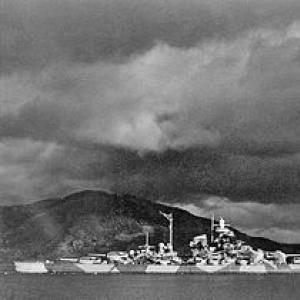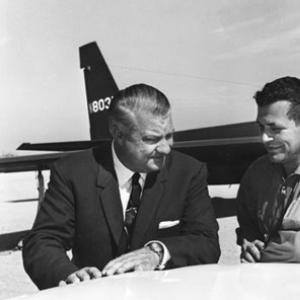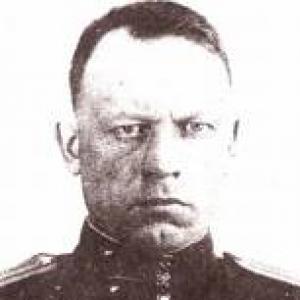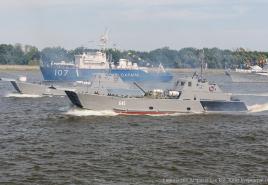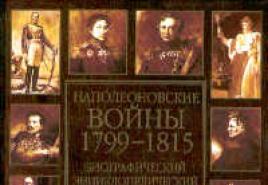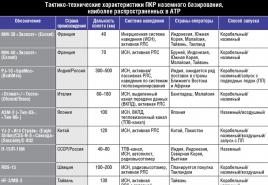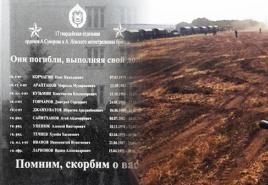The history of the border troops of Zyryanov. Zyryanov, Pavel Ivanovich
16 (according to old style 3) of March 1907 in the village of Glukhovsky Semipalatinsk region of the Steppe Governor-General of the Russian Empire (now in the territory of the East Kazakhstan region of Kazakhstan). Russian. From the family of the railway employee. Since 1919, he worked on hiring in Glukhovsky, then in the village of Lokot Rubtsovsky district of the Altai province. Since 1923 - Secretary of the Localsk rural and parliament cell VLKSM.C. 1924 - in the Red Army. He graduated from the Omsk Infantry School named after M. V. Frunze in 1927. In 1927-1934, he served in the 9th Siberian Infantry Regiment of the OGPU troops in Novosibirsk - a platoon commander (1927), assistant headquarters of the regiment (1930), head of the regimental school (1933). Member of WCP (b) since 1927. Socialized M. Frunze Military Academy in 1937. At the end of the Academy Zyryanov, it was proposed to go to the service in the border troops to the staff position. Zyryanov agreed, but only for a team position. From September 1937 - in the border troops of the NKVD of the USSR, the head of the 69th Commissioner of the NKVD of the Far Eastern District. From May 1939 - Head of the headquarters of the border troops of the NKVD of the Primorsky District. From January 1942, the head of the border troops of the NKVD-MVD-MGB of the USSR of Primorsky (then renamed the Pacific) border districts. During the service in the Far East, actively participated in operations against Japanese, Manchurian and White Guard sabotage and intelligence groups, in continuous border slas and battles with Japan military parts. In August 1945, he led the troops of the Primorsky Border District during the Manchu Strategic Operation of the Soviet-Japanese war. Before the border guards of the district, combat missions were put on the seizure and the destruction of Japanese border units and located near the border of garrisons, capture and retention through border rivers, offensive actions together with military units in the border strip. All these tasks of the district troops successfully solved with minimal combat losses. On May 9, 2012, the "Youth" stadium from May 20, 1952 - Head of the Main Directorate of the Border Guard Forces of the Ministry of State Security of the USSR (MGB). In March 1953, the USSR MGB was abolished, and border troops were transferred to the Ministry of Internal Affairs of the USSR. From June 1954 - Member of the Collegium of the Ministry of Internal Affairs of the USSR May 28, 1956 P. I. Zyryanov was transferred to the State Security Committee at the Council of Ministers of the USSR and appointed Deputy Head of the 3rd Main Department of the KGB (military counterintelligence). In October - November 1956 was in the Hungarian People's Republic and took an active part in the operations of suppressing armed anti-Soviet rebellion (the then official formulation of those events, now known as the Hungarian uprising). With April 1, 1957 - again the head of the Main Directorate of the Border Troops transmitted The Committee of State Security at the Council of Ministers of the USSR. At the same time from September 1959, a member of the KGB board at the CM of the USSR. In 1964, he participated in the visit of the Soviet delegation to the People's Republic of China to conduct negotiations on controversial border issues, in February - August 1964 - the head of the Soviet delegation at the negotiations on the definition of the border on the disputed areas between the USSR and the PRC, 20-year-old activities . I. Zyryanova as the head of the border troops of the USSR is estimated at most modern publications as positive and reform. By ensuring reliable protection of the state border, Zyryanov conducted reorganization and re-equipment of troops, ensuring their equipment at the most modern level. The author of the idea of \u200b\u200bcreating mobile maneuverable fire groups on the most dangerous areas of the border for prompt increases in the threat of a breakthrough of the border. This idea was rejected by the successor Zyryanov, but later during the war in Afghanistan in the 1980s they returned to it and implemented. Also, the right thing of this idea Zyryanova is confirmed by the experience of hostilities at the Tajiko-Afghan border in the 90s and in other hot spots in the territory of the former USSR.
Pavel Ivanovich Zyryanov (March 16, 1907, Semipalatinskaya oblast, Steppe Governor-General, Russian Empire - January 3, 1992, Moscow) - Soviet military commander, Colonel-General.
Biography
16 (according to old style 3) of March 1907 in the village of Glukhovsky Semipalatinsk region of the Steppe Governor-General of the Russian Empire (now in the territory of the East Kazakhstan region of Kazakhstan). Russian. From the family of the railway employee. He graduated from a three-class parish school in Semipalatinsk. From 1919 he worked on hiring in the Glukhovsky district, then in the village of Lokot Rubtsovsky county of the Altai province. Since 1923 - Secretary of the Locodsk rural and volost cell of the WLKSM.
Military service
Since September 1924 - in the Red Army. He graduated from the Omsk Infantry School named after M. V. Frunze in 1927. In 1927-1934, he served in the 9th Siberian Infantry Regiment of the OGPU troops in Novosibirsk - the platoon commander (September 1927), the assistant chief of the regiment headquarters (June 1930), the head of the regimental school (January 1933). Member of WCP (b) since 1927.
Service in border troops
He graduated from the military academy of the Red Army named after M. V. Frunze in 1937. At the end of the Academy Zyryanov, it was proposed to go to the service in the border troops to the staff position. Zyryanov agreed, but only for a team position. From September 1937 - in the border troops of the NKVD of the USSR, the head of the 69th Commissioner (Hankay) border of the NKVD of the Far Eastern district. From May 1939 - Head of the headquarters of the border troops of the NKVD of the Primorsky District. From January 1942, the head of the border troops of the NKVD-MVD-MGB of the USSR of Primorsky (then renamed the Pacific) border districts. During the service in the Far East, actively participated in operations against Japanese, Manchurian and White Guard sabotage and intelligence groups, in continuous border slas and battles with Japanese military units. In August 1945, he led the troops of the Primorsky Border District during the Manchu Strategic Operation of the Soviet-Japanese war. Before the border guards of the district, combat missions were put on the seizure and the destruction of Japanese border units and located near the border of garrisons, capture and retention through border rivers, offensive actions together with military units in the border strip. All these tasks of the district's troops have successfully solved with minimal combat losses.
At the head of the border troops
From May 20, 1952 - Head of the Main Directorate of the Border Forces of the Ministry of State Security of the USSR (MGB). In March 1953, the USSR MGB was abolished, and border troops were transferred to the Ministry of Internal Affairs of the USSR. Since June 1954 - Member of the Collegium of the USSR Ministry of Internal Affairs.
On May 28, 1956, P. I. Zyryanov was transferred to the State Security Committee at the Council of Ministers of the USSR and appointed Deputy Head of the 3rd Main Department of the KGB (military counterintelligence). In October - November 1956, he was in the Hungarian People's Republic and took an active part in the operations to suppress the armed anti-Soviet rebellion (the then official formulation of those events, now known as the Hungarian uprising).
From April 1, 1957, the head of the Main Directorate of the Border Forces transferred to the Committee of State Security at the Council of Ministers of the USSR. At the same time from September 1959, a member of the KGB board at the CM of the USSR. In 1964, he participated in the visit of the Soviet delegation to the People's Republic of China to conduct negotiations on controversial border issues, in February - August 1964 - the head of the Soviet delegation at the negotiations on the determination of the border on the controversial sites between the USSR and the PRC.
Long 20-year activity P. I. Zyryanova as the head of the border troops of the USSR is estimated in most modern publications as positive and reform. By ensuring reliable protection of the state border, Zyryanov conducted reorganization and re-equipment of troops, ensuring their equipment at the most modern level. The author of the idea of \u200b\u200bcreating mobile maneuverable fire groups on the most dangerous areas of the border for prompt increases in the threat of a breakthrough of the border. This idea was rejected by the successor Zyryanov, but later during the war in Afghanistan in the 1980s they returned to it and implemented. Also, the right thing of this idea Zyryanov was confirmed by the experience of hostilities at the Tajiko-Afghan border in the 90s and in other hot spots on the territory of the former USSR.
From December 1972 - retired. He lived in Moscow. Died in 1992.
The name of Colonel-General Pavel Ivanovich Zyryanova in October 2002 was called the Zadavas "Tour Rog" of the Hankay border project (Primorsky Krai).
Military titles
- Captain (1936);
- Major (September 27, 1937);
- Colonel (May 31, 1939);
- Major General (3.05.1942);
- Lieutenant-general (07/15/1957);
- Colonel-General (02/23/1961).
Awards
- 3 Orena Lenin (November 24, 1950, February 14, 1951, March 15, 1967),
- order of the October Revolution (August 31, 1971),
- 7 of the Red Banners Order (September 20, 1943, November 3, 1944, September 8, 1945, November 5, 1954, December 18, 1956, December 10, 1964, May 27, 1968),
- order of the Patriotic War of the 1st degree (March 11, 1985),
- 2 orders of the Red Star (February 14, 1941, March 16, 1987),
- medals
- 5 foreign orders.
Sources
- http://shield7sword.mozohin.ru/personnel/zyryanov_p_i.htm.
- Article about P. I. Zyryanov in the newspaper "Red Star"
- Biographies of the heads of the border troops of the USSR and the Russian Federation
- Kolesnikov G. A., Rozhkov A. M. Orden and the USSR medals. - M.: VI, 1983.
- Collection of legislative acts on state awards of the USSR. - M., 1984.
- Grebennikova G. I., Katkova R. S. Orden and the USSR medals. - M., 1982.
- Durov V. A., Strekalov N. Order of the Red Banner. - M., 2006.
- Gorbachev A. N. Multiple Cavalers of the Order of the USSR. - M.: "Pro-Kvant", 2006.
- Gorbachev A. N. 10000 Generals of the country. - M., 2007.
- "Red Star" (newspaper) January 9, 1992. - P. 4.
- "Red Star" (newspaper) March 16, 2007. - P. 2.
Boyarsky Vyacheslav. "Line Zyryanova. When the border was on the castle. Pages of history. " M., Publishing House "Red Star", 2008, 320 p., Ill.
((Direct))
The book of the doctor of historical sciences, a valid member of the Academy of Military Sciences Vyacheslav Ivanovich Boyarsky tells about the main stages of the life and service of the wonderful of our contemporary, the prominent statesman of Colonel-General Pavel Ivanovich Zyryanova.
General Zyryanov belonged to the cohort of those people who remember and will remember, despite the fact that they did not make exploits, did not make outstanding discoveries. He honestly and conscientiously worked in his post, seeking to ensure that our state border is constantly "on the castle." In addition to the three orders of Lenin and other state awards on his uniform, the orders of the Red Banner were concerned.
Pavlu Ivanovich fell out the honor of becoming one of the founders of Soviet border troops. In a difficult period of the post-war history of the USSR, he for twenty years (from 1952 to 1972) commanded the border troops of our country. By itself, the period is recorded. And on the border, he came in 1937 after the end of the M. Frunze Military Academy. He commanded the Hankay border detachment, then he was the head of the border troops of the Primorsky district, and since 1944 he led all the border troops in the Pacific Ocean.
In the post of head of the Main Directorate of the Border Guard Forces, Zyryanov had to work in difficult time when the creation, the construction of the future, including at the USSR state border, was held against the background of an acute political struggle that unfolded in the upper echelon of power. The leaders changed, the leaders changed, and everyone tried to make her "Lept" not only in the case of the "final construction of socialism", but also, of course, to ensure the "reliability of the state border protection". At the same time, in the governing party and government circles, since mid-1953, the thesis was increasingly advanced about what-de "We won in the Great Patriotic War, they pushed the foci of military threat from their borders and, therefore, the border becomes a line, which does not share Peoples, and strengthens friendship between them. " In this regard, the abbreviation of border districts, detachments and stamping began. Zyryanov as a real professional one of the first understood the fear of such decisions. He and his headquard developed and for several years successfully implemented a plan for conducting large-scale reforms on the border, which allowed her to cover it safely.
During his narrative, the author leads the words of one of the veterans of the border troops, which, in particular, notes: "The official activity of border guards in the 1960s proceeded under the leadership of Colonel-General P. I. Zyryanova, the place and role of which in the life of the border troops significant. Actually, the biography of his life and the chronicle of the combat path of the troops is identical. He all over himself, all his vast experience and truly encyclopedic knowledge gave the construction of border troops. For us, chiefs of border detits, he was Olympus, and we stretched to this moral altitude. "
Pavel Ivanovich Zyryanov for so long he led the border troops of the Soviet Union that it was time to talk about the time on the border as about the "Epoch of Zyryanov". The author of these lines, for example, over the years passed the way from the head of the border shop to the headquarters of the border-head. Yes, and time was not easy: the drama of the first postwall years, the drops of "Khrushchev thaw", the first serious border conflicts with China, the beginning of the "Cold War" ... Naturally, for a stable, confident leadership, the border troops needed to have an outstanding abilities of the commander. General Zyryanov possessed them to the fullest.
The sake of objectivity should be noted that Pavel Ivanovich Zyryanov was the successor of General N.P. Stakhanov, under the leadership of which border guards carried out operational and combat missions during the Great Patriotic War, large-scale measures were carried out on post-war arrangement of new borders of the Soviet Union, as well as the strengthening of the border troops. P.I. Zyryanov, as you know, deservedly continued this relay.
Nowadays, the negative estimates of the border guard period are sometimes heard: "Iron Curtain", "Ordinary Military Guard". Of course, from the standpoint of today in the system of border protection, apparently not everything was completely. Nevertheless, it is not based on the military, according to the operational and military forms and methods of service, was quite reliable, adequate time and the threats that actually arose at the border of the USSR.
Many of us who began service at the border at the turn of 1940-1950s., For example, how tributant perceived a fairly complete provision of border detits, sea brigades, making and ships with all necessary for service and training personnel, quite a satisfactory state of military Disciplines and order in border collectives. Considered as if of granted. And this is just a few years after the hardest war.
Now, after half a century, for most of our removal, other border units, much of this, unfortunately, is unfulfient.
It seems that the great merit of General Zyryanova is that by the beginning of the 1960s. All the most active areas of the border in the North-West, in Transcaucasia, Central Asia have been equipped with the newest alarm systems, other technical means. Their use in combination with the enhancement of border intelligence (in the early 1960s. These bodies have been strengthened, derived from the headquarters and are subordinated to the commander directly) significantly increased the reliability of the state border protection.
It was not easy, and many of us who then served, were such eyewitnesses. It is enough to recall the destructive border to protect the leadership of the KGB (in the late 1950s.) On a large-scale reduction of border troops. Unfortunately, then General Zyryanov and his device could not resist this plan, politically conjunctural, poorly calculated with operational and other positions. The consequences of these initiatives demanded several years of hard work to restore the operational and combat potential of border troops.
Characteristic detail: Accustomed to evaluate the organizational and educational work, the chain of the border detachments and the supply, General Zyryanov, even in the hardest situation, found, it seems that the optimal solution is thought. The central apparatus was reduced mainly (the State Hum to the beginning of the 1960s. Had the number of only 110-115 officers and 4-5 generals), district devices and some parts directly not involved in the border guard. As for the border guards and making, their operational and official opportunities were practically preserved, and later even strengthened.
Under the direct leadership of Zyryanov in the 1960s. Large measures were carried out to improve the protection of the border on the Pacific Ocean and in the Arctic. They were conducted in the exclusively complex physico-geographical and climatic conditions of those places. Nevertheless, designed and implemented wTO The system of protection and protection of the interests of the USSR in the border spaces of these regions retained its effectiveness for many years.
The stay of General Zyryanov in the border detachments, other connections and parts almost always included visiting the border making, ships, detailed conversations with the command, condemnation their suggestions. Before leaving, he, as a rule, spoke to the officer team, shared his impressions, assessments.
It will not be an exaggeration to say that the increased attention of Pavel Ivanovich has always paid the heads of the border guards. Itself in the late 1930s. The chief of one of the detachments on the active section of the Far Eastern border, he considered extremely important these compounds in the border troops structure. His communication with officers at the fees, when traveling to the border, touched upon the most acute issues of operational activities of the troops. I think it expanded his awareness, allowed it to better see problems, ways to solve them.
In communicating with subordinates, Pavel Ivanovich was always restrained, tacty. Subordinate commanders listened patiently, even if their reports did not coincide with his point of view. It seems that this kind of democracy of the commander relations (when the senior boss is available for a normal dialogue with the younger) for our border guards, and should remain a good tradition.
General Zyryanova knew well in the cross-country regions of the country. His trips and communication with residents of border areas and regions were always rich and fruitful, consistently strengthened the situation and the authority of border guards. And it also became a good tradition.
General Zyryanova, I am confident, all veterans-border guards agree with this, it is possible to consider the initiator of the active study of the officers of the tactical and operational and tactical levels in the form of district, intermediate and detachment fees conducted with an intense, saturated program. At the fees, except for educational and demonstration activities, inspection of border infrastructure facilities, the most acute problems of the protection of the borders, preparation and education of personnel were often carried out for discussion. Pavel Ivanovich is an indispensable and interested participant.
The atmosphere was created, in which the command of the border workers and detachments could be exploned to all interested in their issues, including the prospects for the development of the border troops and the protection of the state border.
Among the border veterans and historians to this day there are conversations and even disputes about the so-called interchangeable version of the border guard. And in the 1960s. This version of service is the subject of sharp discussion. General Zyryanov was an active supporter and did a lot to implement this idea to life.
In the second half of the 1960s. In most border districts (except western), there were already equipped and translated into a replacement option for the protection of the boundaries of 2-3 border detachments, when 50% was made by the service, and the rest were engaged in professional and combat training in the garrison.
This option, of course, had a number of advantages: the traveler had enough time after another shift for full rest and occupation, all officers lived in well-maintained apartments in the garrison, where officers could work, and children to learn; The team of the squad always had a fairly strong fightening reserve. By the way, this way of protection of the border existed then in a number of countries, for example, in the neighboring Turkey with us.
But there were this option and vulnerable parties. He did not fully satisfy the hardest requirements for the reliability of the border guard. So, for example, the areas of border crossing increased twice, periodic changeability of the stamina has adversely affected the content of their premises, technical means at the border. Probably, it was all possible with time to somehow correct, but after the resignation of Zyryanov opponents added this option, and he was canceled.
Attention, in our opinion, not only the idea of \u200b\u200bsuch restructuring of the border protection itself deserves, but also the circumstance of working out all issues related to its implementation.
With the name of General P.I. Zyryanova is connected and another interesting page of the history of border troops: the beginning of the arrangement and strengthening of the protection of the Soviet-Chinese border.
This border is known for political reasons before the early 1960s. It was designated as the "border of friendship" and in many directions was guarded, it can be said symbolically. However, the frequent attempts by the Chinese, and sometimes and power to master some areas challenged by them at this border (Pass Buz Aygyr, a number of islands on Amur and Ussuri, etc.) indicated the need to negotiate the passage of the line of the Soviet-Chinese border, negotiations The design of which was completed in the XIX century. And many sites were quite confusing.
General P.I. Zyryanov was headed by the first government delegation of the USSR in negotiations with China on these issues in 1964. The delegation under his leadership managed to agree with the Chinese side almost the entire eastern line of the Soviet-Chinese border. Agreement was not reached only in the area of \u200b\u200bthe border in the districts of the islands of Big Ussuriysky and Tarabarov, since the Chinese side insisted on them to transfer the PRC. Negotiations were interrupted. Then the well-known events on Damansky, Zhalanashcol and a number of other border incidents unleasted by the Chinese side are followed. The situation in this area of \u200b\u200bthe boundary required special attention.
Strengthening the protection and protection of the Soviet-Chinese border under the leadership of General Zyryanov was carried out comprehensively. The accelerated pace was the deployment of new border detachments, making, motor-mahedral groups, brigades and river boat divisions, infrastructure increased. Reserve divisions were equipped with modern weapons and appliances. It did not cost and without overweights: the adoption, for example, the armament of the brunettens of tank battalions and other heavy weapons was inappropriate, and from all this soon I had to refuse.
Nevertheless, the active arrangement of the Soviet-Chinese border, started under the leadership of Zyryanov, continued, and these measures were quite justified, appropriate. Here, as in other active areas of the border (in the Caucasus, in Central Asia, in the North-West), the basis of the grouping of border forces and funds was represented by military and operational components, which combine reliable protection and border protection.
The resignation of General Zyryanov in 1972. I became a surprise for many officers and in GUV, and at the border.
It seems that in all circumstances of this event, the independent nature of the general, his solid position in defending its principles and decisions was played by the latter role.
In 1977 We are with the General G.A. Preobrazhensky, at that time, Pavel Ivanovich visited the head of the rear, in connection with his 70th anniversary. Congratulations, handed a gift from the GUVD team, souvenirs. Soon the General P.A. joined us Chirkin. Pavel Ivanovich was Bodr, energetic, recalled episodes from his service.
I took advantage of it seemed to me that a favorable situation asked if he was going to publish his memories that would be interesting to border guards and not only to them. Zyryanov frowned: "There was such a thought. But I did not lead the diaries, you also need help and on work in the archives ... I wrote a note about this, but I refused. " Time was missed.
Fill this gap, it seems, there must be objective memories of contemporaries, colleagues of General P.I. Zyryanova.
Yuri. Neshumov, Lieutenant-General retired
the USSROther states:
 |
Pavel Ivanovich Zyryanov (March 16, Semipalatinskaya oblast, steppe general-governance, Russian Empire - January 3, Moscow) - Soviet military leader, Colonel-General.
Biography
16 (according to old style 3) of March 1907 in the village of Glukhovsky Semipalatinsk region of the Steppe Governor-General of the Russian Empire (now in the territory of the East Kazakhstan region of Kazakhstan). Russian. From the family of the railway employee. He graduated from a three-class parish school in Semipalatinsk. From 1919 he worked on hiring in the Glukhovsky district, then in the village of Lokot Rubtsovsky county of the Altai province. Since 1923 - Secretary of the Locodsk rural and volost cell of the WLKSM.
Military service
Service in border troops
The name of Colonel-General Pavel Ivanovich Zyryanova in October 2002 was called the Zadavas "Tour Rog" of the Hankay border project (Primorsky Krai).
Military titles
- Captain (1936);
- Major (September 27, 1937);
- Colonel (May 31, 1939);
- Major General (3.05.1942);
- Lieutenant-general (07/15/1957);
- Colonel-General (02/23/1961).
Awards
- 3 Orena Lenin (November 24, 1950, February 14, 1951, March 15, 1967),
- order of the October Revolution (August 31, 1971),
- 7 of the Red Banners Order (September 20, 1943, November 3, 1944, September 8, 1945, November 5, 1954, December 18, 1956, December 10, 1964, May 27, 1968),
- order of the Patriotic War of the 1st degree (March 11, 1985),
- 2 orders of the Red Star (February 14, 1941, March 16, 1987),
- medals
- 5 foreign orders.
Sources
- shieldandandsword.mozohin.ru/personnel/zyryanov_p_i.htm.
- Kolesnikov G. A., Rozhkov A. M. Order and medals of the USSR. - m.: V, 1983.
- Collection of legislative acts on state awards of the USSR. - m., 1984.
- Grebennikova G. I., Katkova R. S. Order and medals of the USSR. - m., 1982.
- Durov V. A., Strekalov N. Order of the Red Banner. - m., 2006.
- Gorbachev A. N. Multiple Cavalers of the Order of the USSR. - m.: "Pro-Kvant", 2006.
- Gorbachev A. N. 10000 general generals. - m., 2007.
- "Red Star" (newspaper) January 9, 1992. - P. 4.
- "Red Star" (newspaper) March 16, 2007. - P. 2.
Write a review about Article "Zyryanov, Pavel Ivanovich"
Excerpt characterizing Zyryanov, Pavel Ivanovich
- Chapter of the French government, Au Chef Du Gouverienement Francais, "Prince of Dolgorukov said seriously and pleasure. - Is it not true that good?"Good, but I really won't like him," Bologkoe noticed.
- Oh, and very! My brother knows him: he had no time dinner from him, at the present emperor, in Paris and told me that he did not see the more sophisticated and cunning diplomat: you know, the combination of French dexterity and Italian acting? Do you know his anecdotes with the graph Markov? Only one Count Markov knew how to contact him. Do you know the handkerchief story? This is a charm!
And a word of dogs, turning to Boris, then to the prince Andrei, he told how Bonaparte, wanting to experience Markov, our envoy, who was deliberately dropped in front of him a handkerchief and stopped, looking at him, waiting, probably, the services from Markov and how, Markov immediately He dropped alongside his handkerchief and raised his own, without raising the groove of Bonaparte.
- Charmant, [charmingly] - said Bolkonsky, - But what, prince, I came to you by the staff for this young man. Do you see what? ...
But Prince Andrei did not have time to proceed with the room, he entered the room, who called Prince Dolgorukova to the emperor.
- Oh, what annoyance! - Dolgorukov said, hastily getting up and shaking hands of Prince Andrei and Boris. - You know, I am very happy to do everything that depends on me, and for you and for this cute young man. - He shook the hand of Boris with an expression of good-natured, sincere and lively levity. - But you see ... to the other times!
Boris was worried about the proximity to the highest power, in which he felt at that moment. He was aware of himself here in contact with those springs, which led all those huge movements of the masses, of which he felt a little, submract and insignificant "part in his regiment. They went out into the corridor, following the prince of Dolgorukov and met the exterior (from the door of the sovereign, in which the Dolgoruki entered) a low person in the civilian dress, with a smart face and a sharp feature of the jaw, which, not spoiling him, gave him a special liveliness and Dirlininess of the expression. This low man nodded, as his dolvoye, and in a closely cold look, began to look at Prince Andrew, going straight to him and apparently, waiting for Prince Andrei to bow to him or giving the road. Prince Andrei did not make any other; In his face, his evil, and the young man, turning away, passed the side of the corridor.
- Who is it? Boris asked.
- This is one of the most wonderful, but most unpleasant people. This is the Minister of Foreign Affairs, Prince Adam Chartorizhsky.
"These are these people," said Bolkonsky with a sigh, which he could not suppress, while they came out of the palace, "these people decide the fate of the peoples."
On the other day, the troops made a campaign, and Boris did not have time to visit the most Austerlitsky battle, neither of the Bolkonsky, neither from Dolgorukov and remained for a time in the Izmailovsky regiment.
At the dawn, the 16th of the squadron of Denisov, in which Nikolai Rostov served, and who was in the detachment of Prince Bagration, moved from the night in the case, as they said, and, having passed near the versts behind other columns, was stopped on a big road. Rostov saw the Cossacks, the 1st and 2nd Escadron of the Hussar, the infantry battalions with artillery went forth, and traveled to generals Bagration and Dolgorians with adjutants. The whole fear that he, as before, was experiencing; All internal struggle through which he overcomed this fear; All his dreams about how he will distinguish between the hussars in this matter, they disappeared for free. The squadron was left in the reserve, and Nikolai Rostov boringly and sadly spent this day. In the 9th in the morning, he heard a feet ahead of himself, shouting his bang, saw the bridal back early (there were few them) and, finally, saw in the middle of the Cossacks held a whole squad of French cavalrymen. Obviously, the case was over, and it was obviously small, but happy. The soldiers and officers who held back were told about the brilliant victory, about the occupation of the city of Vishau and the capture of the whole French squadron. The day was clear, sunny, after a strong night frost, and the cheerful brilliance of the autumn day coincided with the news of the victory, which was not only the stories of those who participated in it, but also the joyful expression of people, officers, generals and adjutants who went there and from there by Rostov . The suffice of the heart of Nicholas, in vain a reinforced whole fear preceding the battle, and spent this fun day in the inaction.
- Rostov, go here, drink with grief! - Denisov shouted, sitting on the edge of the road before the flask and snack.
The officers gathered a circle, biting and talking, near the cellar Denisov.
- Here is another lead! Said one of the officers, pointing to the French Captive Dragoon, whom two Cossacks walked on foot.
One of them led about the sharp and beautiful French horse in the prisoner.
- Sell a horse! - shouted Denisov Cossack.
- Established your wellness ...
The officers stood up and surrounded the Cossacks and the captured Frenchman. The French dragoon was young small, Alzasset, who spoke French with a German accent. He chuckled from excitement, his face was red, and, hearing French, he quickly spoke with officers, turning to the other. He said that he would not take him; That he is not to blame for the fact that he was taken, and Le Caporal was to blame, who sent him to capture the backups that he said to him that Russians were already there. And to any word he added: MAIS QU "On Ne Fasse Pas de Mal a Mon Petit Cheval [But do not offend my horse,] and caressed his horse. It was seen that he did not understand well where he was. He apologized, That he was taken, then, assuming his superiors, showed his soldier's serviceability and care of the service. He had a member of our argeegard in all the freshness of the atmosphere of French troops, which was so alien to us.
Cossacks gave a horse for two Chervonz, and Rostov, now, having received money, the richest of officers bought it.
"MAIS QU" ON NE FASSE PAS DE MAL A MON PETIT CHEVAL, "Alzasset Rostov said good-naturedly when the horse was transferred to Gusaru.
Rostov, smiling, reassured the dragoon and gave him money.
- Alic! Alia! - said Cossack, touching the hand of the prisoner so that he goes on.
- Sovereign! Sovereign! - Suddenly heard between the hussar.
All ran, hurried, and Rostov saw from behind on the road several approaching riders with white sultans on hats. In one minute, everyone was in the places and waited. Rostov did not remember and did not feel how he fished until his place and sat on the horse. I instantly passed his regret on non-participation in the case, his everyday life of the Spirit in a circle of vivid faces, instantly disappeared any thought of herself: he was all absorbed in the feeling of happiness that was coming from the proximity of the sovereign. He felt one thing that was the closeness of the rewarded for the loss of this day. He was happy as a lover, waiting for the expected date. Not daring to look around in the front and not looking around, he felt his enthusiastic approach. And he felt it was not one of the sound of the hooves of horses of the approaching cavalcada, but he felt it because, as they approached, everything was lighter, joyful and more considerable and festively done around him. The sun was closer and closer was the sun for Rostov, spreading the rays of the meek and majestic light around him, and so he feels the captured by these rays, he hears his voice - this tender, calm, majestic and at the same time such a simple voice. As it should have been in the feeling of Rostov, dead silence came, and the sounds of the sovereign sounded in this silence.
- Les Huzards de Pavlograd? [Pavlograd Gusara?] - he said inquiringly.
- La Reserve, Sire! [Reserve, Your Majesty!] - Someone answered another voice, so human after that inhuman voice, which said: Les Huzards de Pavlograd?
The sovereign was recalled with Rostov and stopped. Alexander's face was even more beautiful than looking three days ago. It shone as much as greasic and youth, so innocent youth, which resembled the childish fourteen-year-old, and at the same time it was still the face of the majestic emperor. Randomly looking around the squadron, the sovereign's eyes met with the eyes of Rostov and no more than two seconds they stopped at them. Has the sovereign understood what was done in the soul of Rostov (Rostov seemed that he understood everything), but he looked at the second of his blue eyes in the face of Rostov. (Sveto the light and gently and crotko.) Then suddenly he raised his eyebrows, hit the horse with a sharp movement with his left foot and gallop drove forward.

